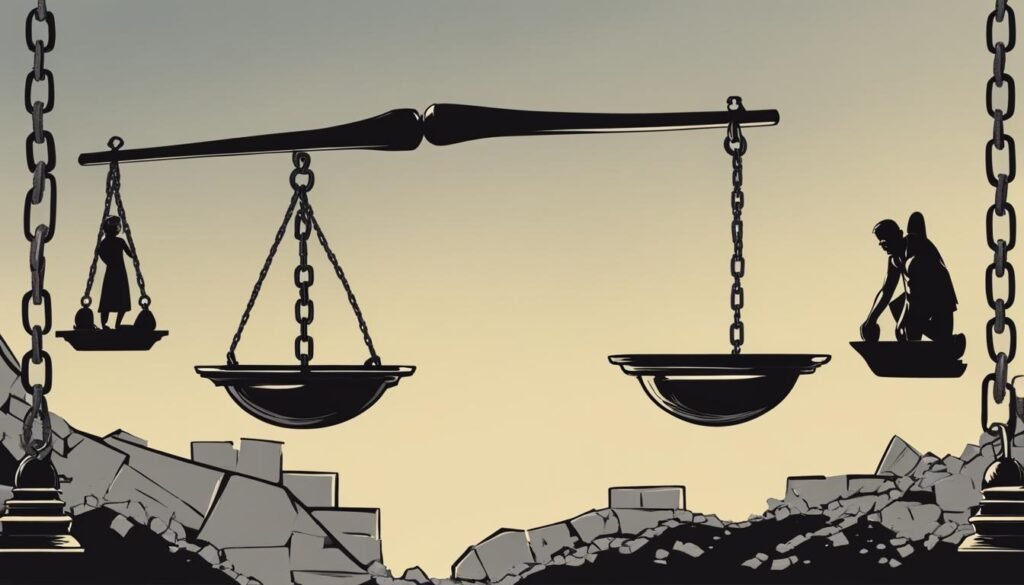“Woke” is a term that has gained popularity in recent years, but what does it actually mean in the context of the Bible? According to Webster’s Dictionary, “woke” refers to someone who is alert to injustice in society, particularly racism. However, from a biblical perspective, being “woke” goes beyond just recognizing social injustices. It involves being awake to spiritual truths, being conscious of the teachings of the Bible, and living in alignment with God’s will. In this article, we will explore the concept of being “woke” in the Bible and its implications for Christians.
Key Takeaways:
- The term “woke” originated from the awareness of social injustices, but in the Bible, it encompasses a deeper spiritual awakening.
- Being “woke” in the biblical sense involves understanding God’s truth and living in obedience to His will.
- Christians should strive for a balanced approach, being awake to both spiritual truths and the pursuit of justice in society.
- Discernment is essential when evaluating ideologies associated with “woke culture” to ensure they align with biblical principles.
- Being “woke” requires a transformative journey of the heart, repentance, and a commitment to God’s truth.
The Evolution of Woke in Society
The term “woke” has evolved over time and has been influenced by various philosophies and thinkers. In the 1960s, ideologies promoted by Karl Marx, Friedrich Nietzsche, and Sigmund Freud started gaining traction, shaping the foundation of what is now known as “woke culture.”
Karl Marx, an influential philosopher and economist, sought to deconstruct the foundations of Christianity and promote a worldview that focused on the dynamics of power and the struggle between the oppressor and the oppressed. His ideas laid the groundwork for the concept of social justice and the pursuit of equality.
Friedrich Nietzsche, a philosopher known for his existentialist ideas, believed in the power dynamics of life and the will to power. He argued that society was divided into the strong and the weak, and it was the strong who would survive while the weak would not. Nietzsche’s ideas contributed to the notion of privilege and the need to challenge existing power structures.
Sigmund Freud, the father of psychoanalysis, explored the complexities of the human mind and how it shapes individual and collective behavior. His theories contributed to the rise of post-modernism, where all truth is considered relative. This relativistic perspective has influenced the idea that different experiences and perspectives should be given equal value.
These ideologies have gradually infiltrated mainstream society, influencing people’s values and beliefs. The concept of being “woke” has become intertwined with these ideologies, emphasizing the need to recognize and challenge systemic inequalities and pursue social justice. As a result, it has become a powerful force in shaping cultural discourse and shaping the way people understand and engage with social issues.
| Philosopher | Ideology |
|---|---|
| Karl Marx | Deconstructing Christianity, oppressor versus oppressed |
| Friedrich Nietzsche | Power dynamics, survival of the fittest |
| Sigmund Freud | Relativistic perspective, post-modernism |
A Biblical Perspective on Being Woke

From a biblical worldview, being “woke” extends beyond recognizing social injustices to encompass a holistic understanding of justice, truth, and transformation. The Bible calls Christians to be awake and aware of injustices, particularly racial injustice and social injustices, and to actively seek justice, fight against oppression, and stand up for the marginalized.
Being “woke” in the biblical sense means aligning our lives with God’s will and pursuing justice in all areas of society. It involves acknowledging the inherent worth and dignity of every individual as created in God’s image and treating others with love, respect, and compassion.
“Learn to do right; seek justice. Defend the oppressed. Take up the cause of the fatherless; plead the case of the widow.” – Isaiah 1:17
Recognizing social injustices and actively working towards justice is an essential part of living out the teachings of Jesus. However, it is crucial to evaluate the ideologies and beliefs associated with “woke culture” through the lens of Scripture. While social justice is important, it should not contradict or overshadow the absolute truth of God’s Word.
Being “woke” in the biblical sense requires a transformation of the heart, a commitment to repentance, and a dedication to aligning our lives with God’s will. It is not merely about being aware of injustice, but also taking action to bring about positive change. As the church, we are called to be awake, discerning, and actively engaged in addressing social issues while remaining rooted in the truth of the Gospel.
The Balanced Approach: Being Awake to Spiritual Truths and Social Justice
When it comes to navigating the complexities of the “woke” movement, a balanced approach is essential. Being “woke” in the biblical sense means being awake to both spiritual truths and social justice. It involves recognizing the significance of God’s Word as the ultimate truth while actively addressing social injustices and advocating for the vulnerable.
By embracing a balanced approach, individuals can engage with the issues present in our culture in a way that aligns with the teachings of the Bible. This approach allows for the discernment of what aspects of the “woke” culture align with the biblical worldview and what may deviate from it.
It is crucial to hold firmly to spiritual truths while addressing social justice concerns. The Bible provides a solid foundation that guides Christians in understanding and responding to the injustices present in society. By staying grounded in scripture and allowing the Holy Spirit to guide their actions, individuals can seek justice in a way that is harmonious with their faith.
Ultimately, a balanced approach to being “woke” combines a commitment to spiritual growth and understanding with an active pursuit of social justice. By integrating these two aspects, individuals can make a positive impact on the world while remaining rooted in the biblical perspective of truth.
FAQ
What is the meaning of being “woke” in the Bible?
Being “woke” in the context of the Bible refers to being alert to social injustices, particularly racism, but it goes beyond that. It involves being awake to spiritual truths, conscious of the teachings of the Bible, and living in alignment with God’s will.
How has the concept of being “woke” evolved in society?
The concept of being “woke” has been influenced by ideologies promoted by Karl Marx, Friedrich Nietzsche, and Sigmund Freud. These ideologies have shaped what is now known as “woke culture” and have gradually infiltrated mainstream society, influencing people’s values and beliefs.
What is the biblical perspective on being “woke”?
From a biblical perspective, being “woke” goes beyond recognizing social injustices. It involves pursuing justice, fighting against oppression, and standing up for the marginalized. However, it is important to evaluate the ideologies associated with “woke culture” through the lens of Scripture, ensuring they align with God’s absolute truth.
How can Christians approach the concept of being “woke”?
Christians should adopt a balanced approach when engaging with the concept of being “woke.” This means being awake to spiritual truths while actively addressing social injustices and advocating for the vulnerable. It requires grounding our actions and beliefs in the teachings of the Bible and being guided by the Holy Spirit.

I’m Benjamin, a passionate spiritual seeker and creator of Verses and Prayers. Alongside my girlfriend Emma and our pet lizard Mulle, I cherish family life, enjoy exploring new places, and am deeply involved in my church community. My love for reading and singing biblical verses inspires every aspect of my journey.

